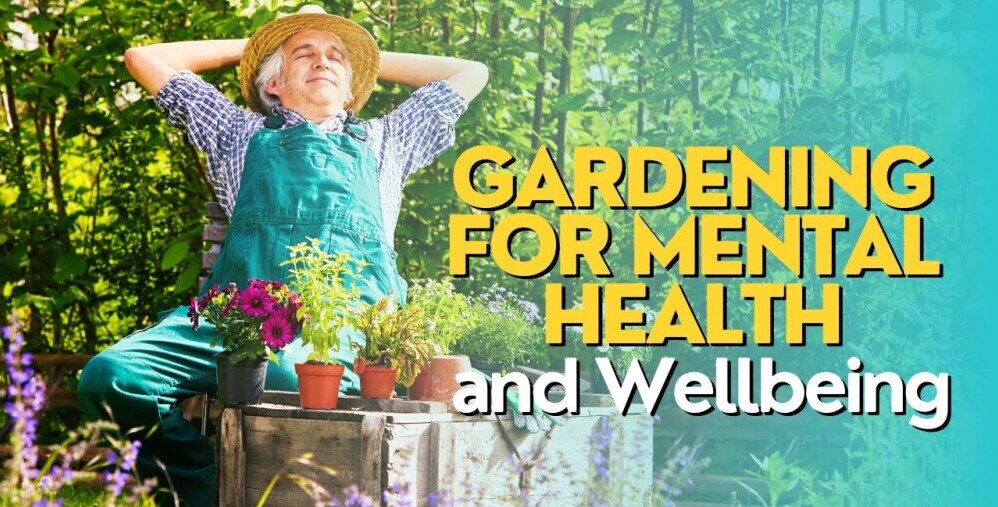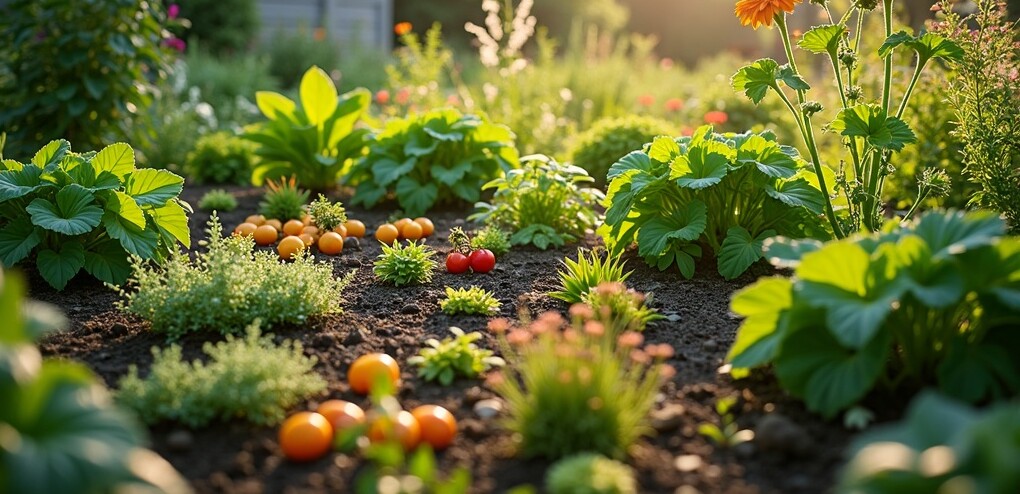
Spending time in the garden is more than just growing flowers or picking fresh veggies for dinner. Tending to plants and soaking up a bit of sun can actually work wonders for your mood and mental well-being. I’ve found gardening to be a pretty handy tool for stress relief and feeling more balanced emotionally, and I’m hardly alone in that. If you’re curious about how digging in the dirt helps your mind, I’m here to break it all down with practical tips to help you get started.
Why Gardening Can Boost Your Mental Health
The link between gardening and better mental health is picking up a lot more attention these days, especially as more people search for everyday ways to feel happier and less anxious. Being around plants and working the soil can have a calming effect plus bring a true sense of accomplishment. Research from different mental health organizations shows that regular gardening can reduce cortisol—that’s the stress hormone—levels, and even help ease symptoms of depression for some folks.
For many, it’s about the simple act of caring for something and watching it grow. That process adds meaning to daily life, which can be missing during stressful times. Connecting with nature, even by repotting a small plant on a city balcony, offers a break from screens and noise, which gives your mind space to reset and breathe.
How Gardening Supports Mental Well-Being
More than just a way to pass the time, gardening taps into some key benefits for your mind:
- Mindfulness: Focusing on the sights, sounds, and smells in a garden helps ground you in the present moment and can shift your attention away from worry.
- Physical Activity: Simple gardening tasks, like digging or pruning, keep you active and moving even without any fancy gym equipment.
- Routine and Structure: Taking care of plants brings gentle structure to your day, which can be tremendously helpful if your regular routine is out of whack.
- Connection: Sharing stories about your garden’s progress with friends, family, or even on social media opens doors for social interaction—perfect, even for introverts.
Being out in the garden, you’re also letting yourself breathe fresh air and check in with your senses, which helps you press pause on mental chatter and anxiety.
Getting Started: Simple Gardening Ideas for a Better Mood
You don’t need a huge yard or a bunch of tools to get mental health perks from gardening. Here are some easy ideas I’ve found approachable for just about anyone:
- Start Small: Pick one or two plants that thrive indoors or in little containers. Herbs like basil, mint, or chives are super easy to manage and fun to use in the kitchen.
- Choose Low-Stress Plants: If you’re new, pick hardy options like succulents or a snake plant. They don’t mind if you forget to water occasionally.
- Create a Regular Routine: Schedule a daily or weekly check-in with your plants. Just five minutes can reset your mindset and lift your mood.
- Keep It Fun: Paint pots, decorate your planter, or try sprouting something from seed just for the experience of it.
Mixing even one of these into your regular days can start bringing some calmness or a sense of focus, even during stressful weeks.
Things to Consider Before You Start Gardening for Mental Health
Like with any new hobby, there are a few things to keep in mind when it comes to gardening—especially if your main goal is improved mental wellness. These pointers can keep the experience positive and keep stress away.
- Garden Size: Small projects are perfect. A windowsill garden or a couple of pots on the porch works just as well as a big yard.
- Budget: Gardening can be done on a tight budget. Repurpose containers, swap seeds with neighbors, or check out plant swaps before heading to the store.
- Time Commitment: Some plants want daily attention, while others are totally chill if you miss a few days. Choose ones that work with your lifestyle and avoid unnecessary stress.
- Allergies/Sensitivities: Watch out for plants that trigger allergies or make your skin itch. Go for low-allergen choices if you’re worried about pollen or irritation.
Garden Size
No need for sprawling vegetable beds or a massive backyard. I personally started with a couple of modest pots on a tiny apartment balcony, and that was enough to feel the difference. It’s better to grow only what you can keep up with; a few happy, well-cared-for plants beat a large and stressful setup any day.
Budget
Gardening is as budget-friendly as you make it. Containers can be old coffee mugs, buckets, yogurt containers, or anything you can drill a hole through. Local community gardens often run free workshops and share extra seeds or starter plants.
Time Commitment
If daily routines are tough to stick with, lean into low maintenance plants like cacti or succulents. Try air plants, too—they look next level cool, require little effort, and you’ll still get all the mental benefits without the pressure of a strict schedule.
Allergies/Sensitivities
If you’re sensitive to pollen or certain plant saps, check out nonallergenic or pet-friendly options. Wearing gloves helps with sensitive skin, and plants like ferns or spider plants are generally gentle for most people. The point is to make gardening feel good, not cause any issues.
Staying in your comfort zone when trying out something new is always a solid way to help positive changes stick around long term.
Advanced Tips for Deeper Benefits
 Once you have a few plants thriving and you’re getting the hang of things, you can dig a bit deeper into gardening’s benefits for mental health. Here are some ideas drawn from my own experience and insights from other green thumbs:
Once you have a few plants thriving and you’re getting the hang of things, you can dig a bit deeper into gardening’s benefits for mental health. Here are some ideas drawn from my own experience and insights from other green thumbs:
Grow Edible Plants: Watching something edible—like tomatoes, lettuce, or berries—go from seed to salad bowl brings a real sense of pride. The satisfaction of growing and eating your harvest is tough to beat; plus, it can motivate you to keep going.
Keep a Garden Journal: Tracking what you plant, the weather, or little milestones helps you stay present. Write down notes, sketches, or your thoughts. Over time, looking back can be encouraging and remind you how far you’ve come, both in your gardening and your well-being.
Join a Community Garden: Teaming up with fellow gardeners introduces you to new friends, useful tips, and fresh inspiration. Lots of people find that belonging to a gardening group is motivating and adds fun to the activity.
Try Themed Gardens: Putting together a sensory garden topped with fragrant or textured plants, a butterfly garden, or a single type of herb garden can be a creative twist. It keeps things feeling fresh and engages different senses.
Switching up your gardening style once in a while can help you avoid a rut and gives you new challenges—the fun kind—to look forward to as you grow your skills and expand your little green corner of the world.
Basic Tools and Supplies for Mental Health Gardening
Starting out doesn’t mean you need a shed packed with fancy gear—just a few helpful basics will set you up nicely. Here are the essentials I reach for most:
- Pots and containers: Start with whatever you’ve got—old mugs, food containers, or plastic buckets are fair game.
- Quality potting soil: Healthy, good soil does most of the work for a happy plant.
- Watering can or spray bottle: Choose whatever’s easiest to handle. Even a drinking glass can do the job to start.
- Hand trowel or small shovel: Useful for scooping dirt or smoothing the top layer of soil.
- Gloves: Protect your hands from dirt, bugs, and any unexpected scrapes.
Add more tools later as you see fit, but don’t feel rushed. Many gardeners find less stuff actually helps them enjoy the process more and keeps stress lower.
Answers to Common Questions About Gardening for Mental Health
It makes sense to wonder what works best or why gardening is so powerful for your mental health. Here are some questions I hear a lot, along with my take:
Question: Do I need a “green thumb” to see any benefits from gardening?
Answer: Not at all! Beginners mess up all the time (I still forget to water sometimes), but plants can be surprisingly forgiving. Start simple and remember—the point is to relax, not to be perfect.
Question: What happens if my plants die?
Answer: Everyone loses a plant here or there. Don’t beat yourself up. Treat it as a learning experience and ask for advice at local garden centers or online. Most people love to help new gardeners figure things out.
Question: How much time should I spend in the garden for it to help my mood?
Answer: Even a few minutes, a couple of times a week, can make a positive difference. Focus on consistency rather than how long you’re out there each time. Building the habit counts more than hitting a set hour.
Wrapping Up: Starting Your Gardening for Mental Health Adventure
Starting a garden—big or small—is a genuine way to care for your mental health using nature and simple daily routines. There’s no “right” plant or bulletproof method. Take what sounds manageable for you, stick with it, and make tweaks as you learn. Pretty soon, you’ll probably start noticing brighter moods, more focus, and a sense of satisfaction with every new green sprout around you. Happy growing!

This is such a beautiful and important post that perfectly articulates what so many of us feel but struggle to put into words. You’ve captured the profound connection between gardening and mental wellbeing with such clarity. The point about gardening as a form of mindfulness—focusing on the simple, repetitive tasks to quiet the mind—resonates so deeply. It’s a powerful reminder that our gardens are not just growing plants, but are also nurturing our inner peace. Thank you for sharing this heartfelt perspective.
Hello Cian and thank you for your positive comment. I have always had some form of gardening in my life, but just prior to Covid, my husband had built be a beautiful 18 foot x 10 foot raised garden bed. At that point, little did I know how much I would need that garden. With the stresses of being restricted in everyday life, having to work at home (interactions with co-workers restricted as well) and helping my kids with online learning, my garden was where I could clear my thoughts, breath in deeply fresh air and taking joy in watching my garden grow and thrive. Without my garden I could not have survived or thrived! I continue to garden and encourage others to do so, as I feel this is one method to strengthen one’s mental health and wellbeing!